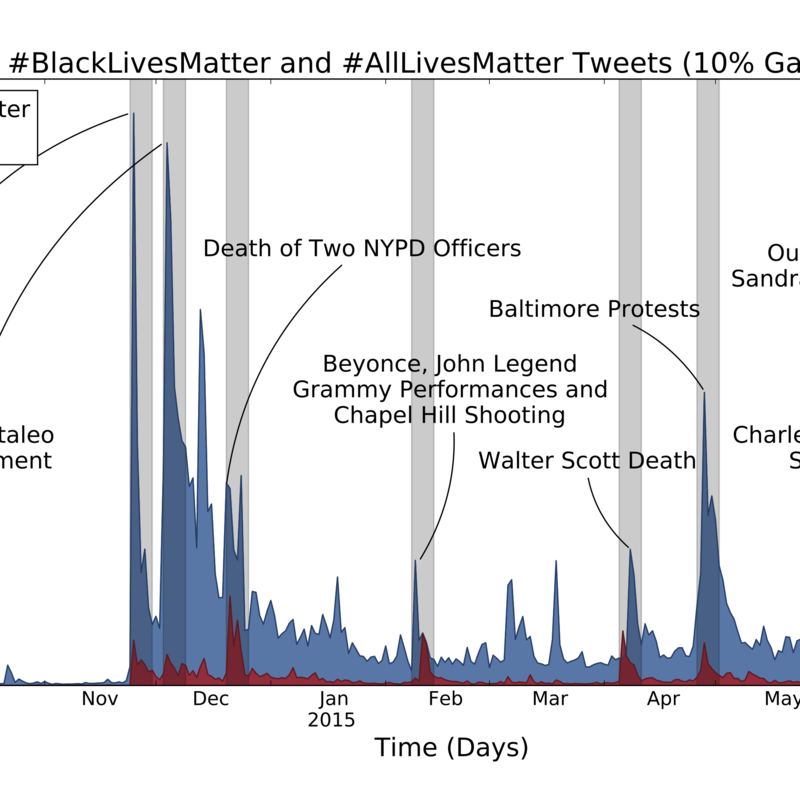Divergent discourse between protests and counter-protests: #BlackLivesMatter and #AllLivesMatter
R. J. Gallagher, A. J. Reagan, C. M. Danforth, and P. S. Dodds
PLOS ONE, 13, 1–23, 2018

Times cited: 285
Abstract:
Since the shooting of Black teenager Michael Brown by White police officer Darren Wilson in Ferguson, Missouri, the protest hashtag \#BlackLivesMatter has amplified critiques of extrajudicial killings of Black Americans. In response to \#BlackLivesMatter, other Twitter users have adopted \#AllLivesMatter, a counter-protest hashtag whose content argues that equal attention should be given to all lives regardless of race. Through a multi-level analysis, we study how these protests and counter-protests diverge by quantifying aspects of their discourse. In particular, we introduce methodology that not only quantifies these divergences, but also reveals whether they are from widespread discussion or a few popular retweets within these groups. We find that \#BlackLivesMatter exhibits many informationally rich conversations, while those within \#AllLivesMatter are more muted and susceptible to hijacking. We also show that the discussion within \#BlackLivesMatter is more likely to center around the deaths of Black Americans, while that of \#AllLivesMatter is more likely to sympathize with the lives of police officers and express politically conservative views.
- This is the default HTML.
- You can replace it with your own.
- Include your own code without the HTML, Head, or Body tags.
BibTeX:
@article{gallagher2018a,
author = {Gallagher, Ryan J. and Reagan, Andrew J. and
Danforth, Christopher M. and Dodds, Peter Sheridan},
journal = {PLOS ONE},
title = {Divergent discourse between protests and
counter-protests: \#BlackLivesMatter and
\#AllLivesMatter},
year = {2018},
volume = {13},
pages = {1–23},
}